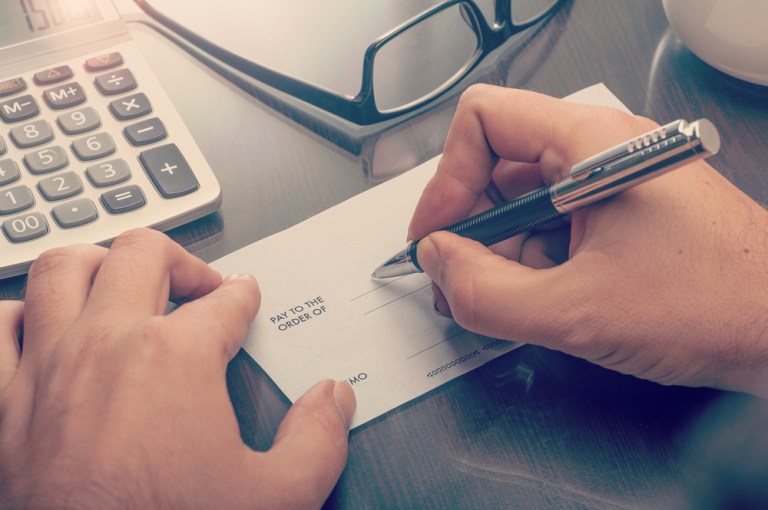Giving In To Corporates’ Paper Check Demands

Last week, payroll and accounting software company Patriot Software announced that it would now be letting its clients, often accountants, print their own checks when running payroll for other businesses, instead of depending on pre-printed checks.
The newest service offered by Patriot may be a direct response to customer demand, but it also reveals new evidence into just how addicted corporate payers are to the paper check.
Patriot rolled out the new service last Thursday (Aug. 4). For the CPAs and bookkeepers using Patriot solutions to manage payroll for their corporate clients, using blank check stock can be easier than having to keep pre-printed checks for multiple clients at one time.
Patriot Accounting Software Specialist Mike Streb explained that there were simply too many customers asking for the ability to use blank check stock for payroll than could be ignored.
“The first couple of times I saw [a request for this service], I was surprised,” he told PYMNTS. “But customer after customer said, ‘Yes, this is something we would like.'”
Streb said he decided to look a bit deeper into why CPAs were demanding blank payroll check services so frequently. In addition to making it easier to manage payroll checks for more than one client, Streb found that paper payroll checks continue to be a mainstay for CPAs and their corporate customers.
“A big piece of it is that there’s a segment of employees that are unbankable,” he explained. “There is a segment of people who can’t get bank accounts, and there is also a segment of people that don’t trust banks; they’d rather take a check to a cashing place or Walmart and have cash in-hand.”
In other words, CPAs’ demand for enhanced paper payroll check services, like blank check stock, is a response to their clients’ employees’ demand to get paid via paper check.
But the CPAs themselves have another incentive to want blank check stock instead of pre-printed checks: fraud.
Streb pointed to one of Patriot’s clients out of Arizona that explained there had been a local crime spree. Criminals were breaking into the offices of CPAs and stealing pre-printed checks. Of course, he added, since these checks weren’t signed, it wasn’t too much of an issue.
Or blank check stock may also prevent the accidental routing of payroll funds to the wrong account, too, if a CPA accidentally placed the incorrect pre-printed payroll check in for printing.
The Bigger Picture
Sure, offering blank check stock may solve some of the problems that CPAs are facing when they’re printing their clients’ payroll checks, but in discussing these challenges with Streb, it became abundantly clear that CPAs wouldn’t have these issues if they and their clients weren’t using paper checks in the first place.
Patriot informs its customers that paper checks may not be the best way to make payroll and corporate payments. The cost of stamps and the time it takes to fold and stuff envelopes are alone incentives to ditch the payment rail, Streb explained.
But changing behavior in the world of payments is far from easy.
“Some of our business owners, they’ve been doing it this way since they started their business 30, 40 years ago,” the executive said. “They aren’t interested in changing it anytime soon.”
He added that it’s unlikely paper checks will go away anytime soon, despite talk of more efficient and cost-effective payment rails moving into the enterprise. Research released on Monday (Aug. 8) by Tipalti, for instance, revealed that 86 percent of companies across an array of industries and sizes are using paper checks to make payments.
Streb admitted that it is difficult to say for sure whether the burden of promoting more efficient payment methods for corporates should land on their payment and FinTech providers or on the companies themselves.
“I think we would prefer that people use the easy, safe method,” he said. “A lot of times, we’ll tell people, if you have direct deposit, once you hit this button, you’re done. Your work stops there. If you want to print paychecks, you still have a couple of steps to do.”
But the check perseveres. And until that pattern fades, Streb said Patriot will provide services for companies that want to make their payments and payroll via paper check or through electronic forms, like direct deposit.
The saying goes: The customer is always right. But when it comes to paper checks in payroll and B2B payments, even if the customer is wrong, service providers have to meet customer demand.
“Personally, I don’t understand it,” Streb admitted of the high demand for paper checks. “I write about five checks a year myself. It’s direct deposit all the way. But we heard this demand from so many people. Very clearly, there’s a need.”